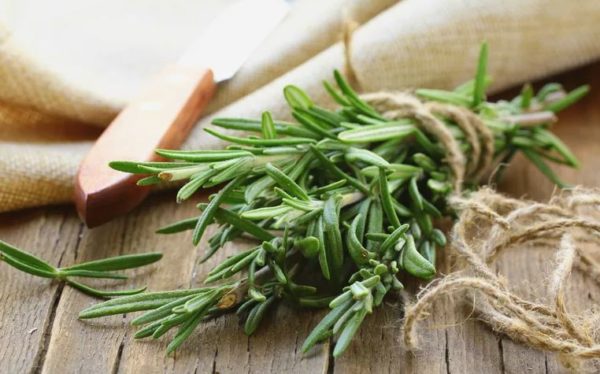Lifestyle
Rosemary: Benefits, side effects and preparations

Rosemary (Rosmarinus officinalis) is an herb commonly used in savory cooking. Rosemary is a key ingredient in many pasta sauces, pizza recipes, and vinaigrettes. The perennial woody herb also has a long history of being used for medicinal and health benefits.
Rosemary has been used in alternative medicine to treat or improve certain medical conditions.
The following are conditions on which researchers have applied the effects of rosemary; though some have a stronger connection to rosemary for potential health benefits than others, more research is needed on rosemary’s effect overall.
1. Hair loss
Early research suggests that applying rosemary oil to the scalp is as effective as minoxidil for increasing hair count in people with male-pattern baldness.
In a research study, people who massaged rosemary and other essential oils (lavender, thyme, and cedarwood) showed improvement after seven months.
2. Arthritis
According to study, oils containing rosemary have been used to relieve muscle and joint pain associated with arthritis and also improve circulation. Some early research shows that taking a product containing rosemary, hops, and oleanolic acid can reduce pain associated with arthritis.
3. Diabetic kidney damage (Nephropathy)
Some research suggests that taking a product containing rosemary, centaury, and lovage may be able to decrease the amount of protein in the urine when taken with standard diabetes medications. Protein in the urine is a marker for kidney disease in diabetic patients.
4. Mental tiredness
Early research shows that taking rosemary does not improve attention or mental energy in adults with low energy levels. However, study results do vary. Other studies show that it can reduce the stress of test-taking and relieve anxiety.
5. Fibromyalgia
While it was thought that rosemary could improve the effects of fibromyalgia, early research suggests that taking a product containing rosemary, hops, and oleanolic acid does not, in fact, improve symptoms of fibromyalgia.
6. Gum disease (Gingivitis)
Early research shows that an herbal mouthwash containing rosemary and other ingredients helps to reduce gum bleeding and swelling in people with gum disease when used twice daily after meals for two weeks.
7. Low blood pressure (Hypotension)
A preliminary study demonstrated that taking rosemary oil may temporarily raise blood pressure in people with hypotension, but the benefit was temporary.
Selection, preparation, and storage
Rosemary has a flavor that is often described as similar to pine. Some also describe it as pungent, lemony, or bitter.
Fresh rosemary is easily found in the produce section of most markets. It is relatively hearty and stays fresh longer than many other herbs when kept in the refrigerator crisper. For that reason, many cooks prefer using fresh (rather than dried) rosemary.
Like all dried herbs and spices, store dried rosemary in an airtight container in a cool dark space. Properly stored, it is likely to stay good for three to four years.
Recipes
Rosemary pairs well with roasted meats, tomato, and vegetable dishes. It is commonly used in Italian cuisine. Rosemary is often used when making pizza and is often combined with other herbs in spice blends.
Possible side effect
When used in typical amounts to flavor food, rosemary is likely safe for most people. It is also possibly safe when used medicinally in appropriate doses for a short period of time. According to medical sources, a typical dosage of rosemary leaf is 4 to 6 grams daily. They advise that rosemary essential oil should not be used internally.
There are some reports of allergic reaction to rosemary when taken in high doses. Side effects may include vomiting, spasms, coma, and in some cases, fluid in the lungs.
Lastly, rosemary dosages should not be used by pregnant women or women who wish to become pregnant.








